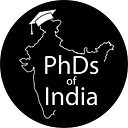Member-only story
The un-glamorous world of infectious diseases
“It is essential that we appreciate people when they do a good job, before complaining about all the mistakes they made. That was my biggest takeaway from working in the UK, where I went for a short period after my PhD. It is a very common thing in India, even in places like CMC, where I worked for most of my life, to have expectations of a certain level and when you don’t reach that level, you are considered a failure. Having remained in such a competitive atmosphere, I was initially petrified when I went to the UK. I am socially awkward at the best of times, and I felt I would not make new friends. Apart from being told that my English was old-fashioned, surprisingly, not only did I make great friends, but I also found validation.
I have always been interested in science, particularly biology, where one could figure out how living beings worked. Ophthalmology, psychiatry and infectious diseases attracted me the most. When I went home after MBBS to study ophthalmology, I discovered my family had a history of familial tremors, which worsened with old age. So I thought a profession that required me to do fine surgery wasn’t the best option, and I ended up studying microbiology, which was the closest thing to infectious diseases. Unfortunately, as a doctor in India, you only get to see a part of the problem and not the whole picture. Such a partial picture wasn’t…
